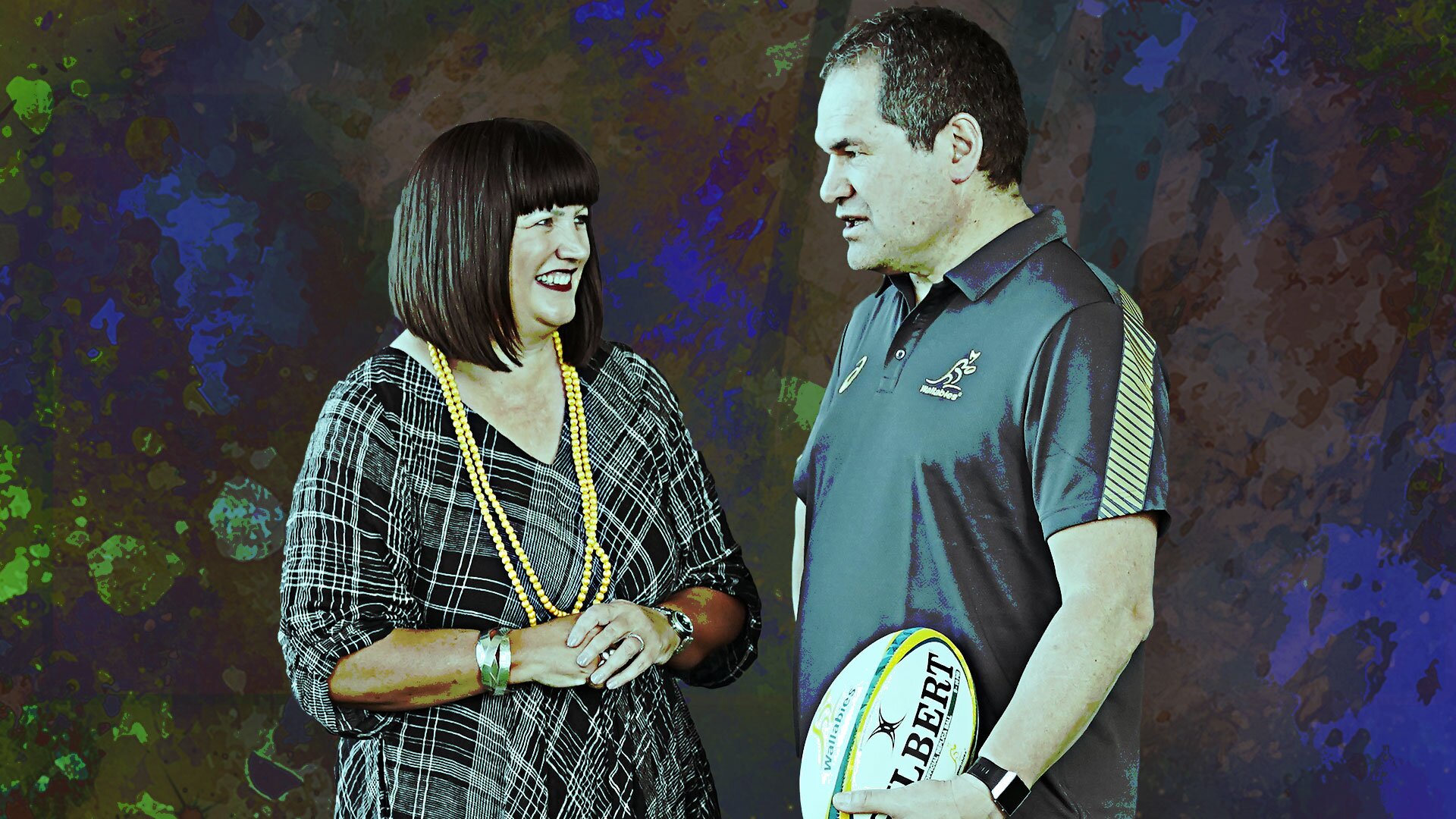Uncertain times: why Rugby Australia must do everything they can to keep Dave Rennie interested

As has been the case time and time again, Rugby Australia needs to come together and make smart decisions as it begins to tackle the dire state of affairs facing the game in its own backyard.
There is a belief system in some business circles which says that the time for radical change is not when things are in a state of crisis, but when all is going well.
Even before COVID-19, nearly all reports out of Australia painted the game in a deep state of crisis. The situation has only worsened now.
In the wake of laying off 70% of staff, primarily due to rugby’s current suspension thanks to COVID-19, the true financial outlook for RA has been revealed and the reactions have become messy as the game faces potential insolvency.
The latest is a suggestion that new Wallabies coach Dave Rennie could walk out on his four-year deal if RA’s CEO Raelene Castle were to be sacked.
Such reports are purely speculation at this point, but RA should consider itself on notice.
Rennie is a man of high integrity and won’t force himself into remaining in an unhealthy working environment. Furthermore, it took a lot for RA to get Rennie to sign on the dotted line because they weren’t the only ones vying to secure his services.
Rennie himself also admits he has a lot of time for Castle and has been impressed by her vision for the future of the sport in Australia.
Suddenly, the ever-increasing reality is that Castle might not be around to ensure that future comes to fruition after two turbulent years of trying.
Originally, hopes were high for Castle, but whichever way this argument is to be cut, it’s not deniable that along the way she has made some bad decisions.
Particularly agreeing to re-sign Israel Folau for a further four years after his initial social media outburst and not placing any measurable controls on his social media activity.
It was a ticking time bomb waiting to go off, and sure enough, it did, resulting in a forced payout that further compounds the difficult financial picture.
https://www.instagram.com/p/B-sEI4QAG56/
Furthermore, Super Rugby fizzled into a competition many followers of the sport in Australia simply didn’t care about, resulting in pitiful attendance levels at stadiums. Then, most recently, broadcast negotiations with Fox came to a shrieking halt.
In the background of all this is Rennie, one of the most gifted coaches in the game, a general that the Wallabies struck gold in securing.
Signing Rennie felt like it could be the start of the rebuild, his task was to get the Wallabies winning again, starting by putting an end to the divide within the dressing room which had grown substantially toward the latter end of the Michael Chieka era.
If the Wallabies were to kickstart themselves somewhere close to what they’ve been when at their best when international rugby was back on the agenda, imagine what it could do for the state of the game in Australia, especially in terms of mindshare.
Success isn’t just the fleeting victory over the All Blacks or Springboks as we’ve seen since the last time the team appeared in a Rugby World Cup final. A good run of results over the course of a season or two will bring the heightened interest and winning expectation that the game needs.
All of this is important because the Wallabies hold a key to success for Rugby Australia moving out of this crisis. Legitimate success for the Wallabies is one of the quickest ways for RA to get the fans back on board.
Those two factors would be good for the health of game in any climate, but Rugby Australia hasn’t been able to generate either for a long time.
It’s hard to argue that Rennie is not the man with the right coaching experience behind him to turn the Wallabies around.
John Kirwan has denounced the ex-Wallabies calling for the head of Rugby Australia boss Raelene Castle.https://t.co/LjVx1vHiJA
— RugbyPass (@RugbyPass) April 8, 2020
If the tension surrounding Castle were to result in Rennie turning his back on coaching the Wallabies, it’s hard to see how that would really improve on anything when you keep in mind the other issues at play
Having Rennie’s arrival go by the wayside would repeat the message to rugby fans in Australia that when their game is facing crisis, everything falls apart and rash decisions are made quickly in order to find the quick fix.
Smart decisions are required, that’s the only way to give the game the very best chance of pulling itself out of the COVID-19 pandemic which has halted the entire sporting landscape.
On a financial front, Rugby Australia have already made some big changes – look no further than RA laying off 70% of its staff and Castle herself taking exactly half of her yearly salary off the table.
It will almost certainly require more than that, but the cost of getting Castle out the door and bringing in Phil Kearns, as has been speculated will cost more not less.
Yes, these are only two pieces of the puzzle, but they’re almighty big ones.
For Rugby Australia, now is not the time to be adding more complication and potential costs to what is already a dire situation.
To force your current CEO out the and sour the relationship with the incoming Wallabies coach is not the way to avoid further muddier waters.













































